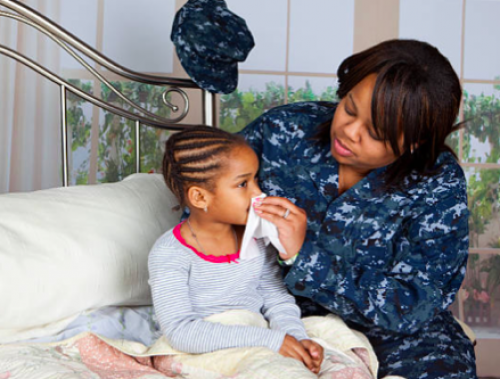Blog
Prevent a Common Cold Catastrophe
 Winter time is a seasonal trap for the common cold. Sore throats, runny noses, coughing, and sneezing may be “common” for a cold, but that doesn’t make having them any less miserable. With millions of cases reported in the United States each year, colds are the main reason adults miss work and children miss school. At SIHF Healthcare, our highly trained medical professionals are dedicated to keeping you and your family healthy this winter.
Winter time is a seasonal trap for the common cold. Sore throats, runny noses, coughing, and sneezing may be “common” for a cold, but that doesn’t make having them any less miserable. With millions of cases reported in the United States each year, colds are the main reason adults miss work and children miss school. At SIHF Healthcare, our highly trained medical professionals are dedicated to keeping you and your family healthy this winter.
There are steps you can take to reduce your risk of catching a cold. It is extremely important to stay away from people who are sick because viruses spread through close contact with others. It can be hard to recognize who is sick and who isn’t, so make sure to wash your hands frequently with soap and hot water. The Centers for Disease Control and Prevention recommends washing for at least 20 seconds. Also avoid touching your face with unwashed hands.
The common cold is appropriately named because it is so widespread and so easy to pass around. If you have a cold, you can reduce the risk of spreading it to others by staying home while you are sick, and avoiding close contact with others. Move away from others before coughing or sneezing, use a tissue or your upper shirt sleeve to cover your nose and mouth, and remember to thoroughly wash your hands immediately afterwards. It is beneficial to disinfect surfaces that are regularly touched such as doorknobs, light-switches, remote controls, keyboards, and phones.
Unfortunately, there is no vaccine to protect against the common cold. The most effective way to feel better is to get plenty of rest and push fluids. You can use over-the-counter medicines to help with cold symptoms, but they will not aid in making your cold go away faster. Antibiotics should not be taken, as they are ineffective against viruses. They may, in fact, make it harder for your body to fight bacterial infections.
A common cold is usually no reason for alarm. However, if you or your child has a temperature higher than 100.4° Fahrenheit, symptoms that last more than 10 days, or symptoms that are unusually severe, call one of our SIHF Healthcare family doctors right away. You should also call immediately if your child is younger than three months old and has a fever, even if they don’t seem sick. The medical professionals at SIHF Healthcare can determine whether your child has a cold, or if it is something more serious. If it is a cold, they can recommend solutions to help with symptoms.
The trained medical specialists at SIHF Healthcare want to ensure you are happy and healthy. If you are feeling out of sorts, and suspect a common cold is to blame, call your local SIHF Healthcare center today to set up an appointment. With more than 30 centers in 11 counties throughout Southern Illinois, it’s easy to find a location near you; just visit http://www.sihf.org/health-centers.
